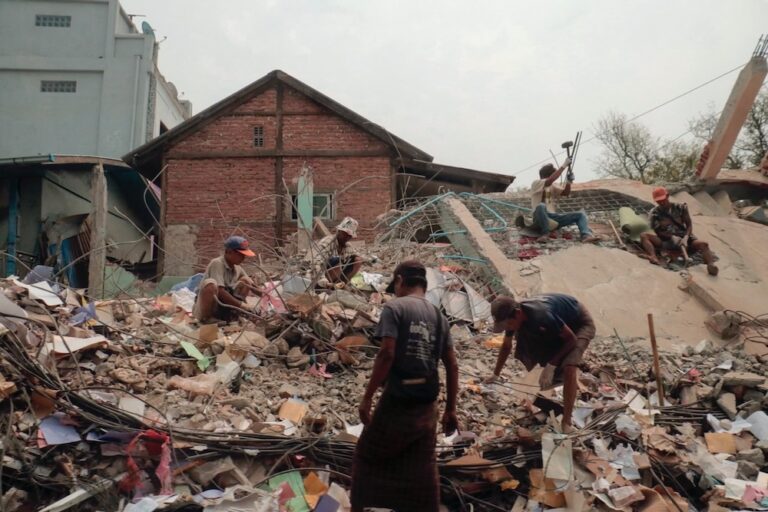(RSF/IFEX) – The following is a 30 November 2004 RSF press release: Junta releases only one of the country’s 13 imprisoned journalists Reporters Without Borders and the Burma Media Association today hailed the release of Ko Sein Ohn after eight years and two months in prison but regretted that he is the only one of […]
(RSF/IFEX) – The following is a 30 November 2004 RSF press release:
Junta releases only one of the country’s 13 imprisoned journalists
Reporters Without Borders and the Burma Media Association today hailed the release of Ko Sein Ohn after eight years and two months in prison but regretted that he is the only one of Burma’s 13 imprisoned journalists to have been freed despite the military junta’s promises and the release of thousands of prisoners. The authorities say the wave of releases is over.
The massive release of prisoners has just been a smokescreen, the two organisations said, accusing the authorities of breaking their promises and openly making fun of the international community. They called on the European Union to maintain sanctions until all prisoners of conscience, including journalists, are freed and prior censorship is abolished.
A cameraman, Ko Sein Ohn was released from Mandalay prison, in the centre of the country, on 26 November 2004. He was arrested on 20 September 1996 and sentenced in a sham trial to 10 years in prison for filming and distributing a video of a speech by opposition leader Aung San Suu Kyi that was not previously approved by the censorship bureau.
On his release, he said military intelligence originally accused him of filming a ceremony at the home of a high-ranking police officer. After finding no evidence to support this, the military authorities then accused him of filming Aung San Suu Kyi, he said, although “I had Maj. Thura’s permission and I shot the film on Aung San Suu Kyi’s birthday in the presence of military personnel.”
He also told Reporters Without Borders that he had problems resulting from high blood pressure and suffered from pains in his knees. He had to receive treatment in the prison infirmary for serious digestive problems for several months in 2000.
“I have nothing left,” he told Reporters Without Borders. “They did not return my video equipment to me. My work has been completely collapsed.”
More than 9,000 people are alleged to have been released from Burma’s prisons in recent weeks but fewer than 50 of them were political prisoners, democratic opposition sources say. “I am really disappointed, but I still hope the announcement of more releases will follow, especially of prisoners of conscience,” National League for Democracy spokesman U Lwin told Agence France-Presse. “If the junta does not free more political prisoners, all this will have been meaningless.”
As of 30 November 2004, at least 12 journalists were in jail in Burma: Aung Pwint, Myint Thein, Thaung Tun, Win Tin, Monywa Aung-Shin, Ohn Kyaing, Sein Hla Oo, Thein Tan, Nay Min, Lazing La Htoi, Zaw Thet Htwe and Aung Myint.


